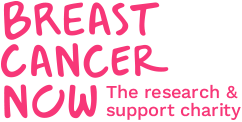We answer some common questions about the current COVID-19 vaccines and breast cancer treatments.
We answer some common questions about the current COVID-19 vaccines and if they are safe and effective for people with breast cancer. Updated April 2023.

Spring boosters 2023: should I get one?
If you’re eligible for a booster dose of the vaccine this spring, the NHS should contact you to offer you an appointment between April and June.
Read a guide to the COVID-19 spring booster 2023 on the GOV.UK website.
You may be offered a booster if you:
- Are 75 or over
- Have a weakened immune system
- Live in a care home
You may have a weakened immune system if you are having or recently had certain treatments such as chemotherapy, biological therapy or radiotherapy.
If you’re unsure about whether you’re eligible, speak to your GP or treatment team.
Are COVID-19 vaccines safe if I’m having breast cancer treatment?
For most people, it’s much safer to have the vaccine than not to have it and risk catching COVID-19.
Vaccination offers the best protection against becoming seriously ill if you get COVID-19.
There are 3 available COVID-19 vaccines, which are considered safe for people having treatments that can weaken the immune system, such as chemotherapy.
Hormone therapy and COVID-19 vaccines
Hormone therapy, such as tamoxifen, letrozole, anastrozole or exemestane, does not typically affect your immune system. Therefore, it shouldn’t reduce the effectiveness of the vaccine, and it should be safe to have the vaccine if you’re taking one of these treatments.
Some people have asked if it’s safe to have the AstraZeneca vaccine if they are on hormone therapy. This follows news stories about a rare type of blood clot in a small number of people who had this vaccine. Blood clots can be a side effect of tamoxifen.
However, as far as we’re aware there’s no increased risk of blood clots in people who have the AstraZeneca vaccine while taking hormone therapy.
Trastuzumab (Herceptin) and COVID-19 vaccines
It should be safe to have the vaccine if you’re having trastuzumab (Herceptin).
Your treatment team can tell you when the best time to have the vaccine would be.
While we don’t know exactly how effective the vaccine is in people having targeted therapies, it’s still likely to offer protection against becoming seriously ill with COVID-19.
Vaccinations after lymph node removal
If you have had surgery to remove some of or all of your lymph nodes in your armpit, you may be worried that having the vaccination will increase your risk of lymphoedema.
There’s no strong evidence that having injections in your ‘at risk’ arm will cause lymphoedema. However, you may prefer to use your other arm.
If you have had lymph nodes removed from both sides, the vaccine can be given safely into your thigh.
If you have lymphoedema already it's recommended injections should be in the unaffected arm.
You’ll need to talk to the vaccination team on the day of your appointment if you’re worried about having an injection on your affected side.
Will the vaccine be effective if I’m having treatment?
Although we don’t know for certain how effective the vaccine will be for people having treatments such as chemotherapy or targeted cancer therapies, it’s likely to still offer some protection against the virus.
During treatment you will usually have regular blood tests to check your white blood cell count. A reduced white blood cell count may mean you’re more at risk of infection.
However, it doesn’t mean that your body is less capable of developing immunity from the vaccine. This is because different parts of the immune system are involved in this process.
You may be advised to have the vaccine at a specific point during your treatment cycle when your immune system is at its healthiest.
A very small study has suggested some cancer patients had less protection after their first dose of the Pfizer vaccine compared to people without cancer.
People with cancer are advised to follow their doctors’ advice about having the vaccine.
When should I have a vaccine?
If you are having treatment, when you have your COVID-19 vaccination may depend on the type and timing of your cancer treatment. Your treatment team will be able to offer advice based on your individual situation.
You can find out general information about when to have a vaccine on the NHS website. There is also information specifically for people who have a severely weakened immune system, which may be the case if you have had certain cancer treatments.
Can I have a COVID-19 vaccine if I’ve finished my breast cancer treatment?
Yes. When you have completed your breast cancer treatment, your immune system gradually recovers from any side effects of chemotherapy or other treatments. There’s no reason to think the vaccine won’t be effective if you have had breast cancer and have finished your treatment.
What should I do after I’ve had the vaccine?
The government recommends everyone follow the same actions to reduce the risk of catching COVID-19 or passing it on to others. These are:
- Get vaccinated
- Let fresh air in if you’re meeting others indoors
- Wash your hands, cover coughs and sneezes, and regularly clean surfaces you touch often
- Think about wearing a face covering if you're in close contact with other people, or in crowded spaces
There’s no longer separate guidance for people previously classed as being clinically extremely vulnerable.
If you have questions about COVID-19 vaccinations and breast cancer, contact our Helpline team on 0808 800 6000.
